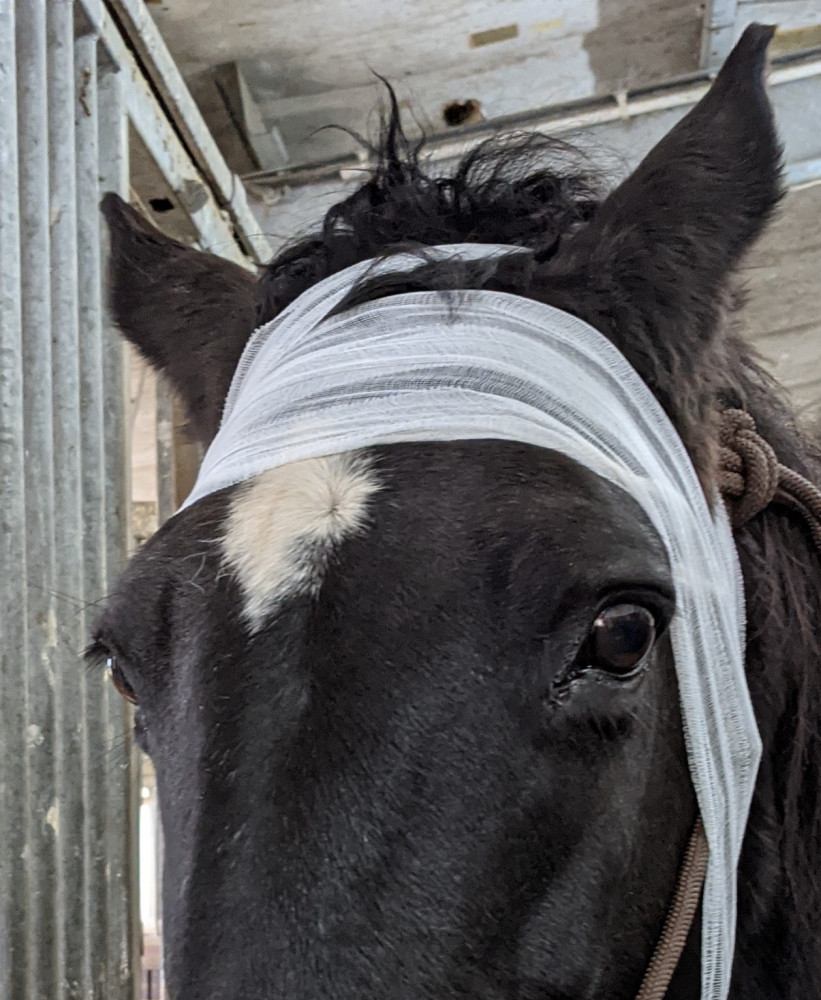Pyroluria in the horse – An almost forgotten metabolic disease
 Pyroluria, pyrrole disease, or kryptopyrroluria (KPU) are terms that describe the same metabolic disorder that can occur in humans as well as in horses. In the mainstream medicine of today this disease has largely been forgotten.
Pyroluria, pyrrole disease, or kryptopyrroluria (KPU) are terms that describe the same metabolic disorder that can occur in humans as well as in horses. In the mainstream medicine of today this disease has largely been forgotten.
Today, when a diagnosis is being made, there is rarely any thought given to the possibility of pyroluria, which might lead to a misdiagnosis and won’t help the horse. Therefore it is important to even draw attention to little-known diseases so that a misdiagnosis can be avoided.
Pyroluria – a genetic disease
Pyroluria is a genetic disease that seems to occur more frequently within single families. Human research about this disease was conducted in the USA in the 1960 and later veterinary studies have shown that is can also occur in horses. A horse with the disease basically suffers from a chronic vitamin B6 and zinc deficiency. This chronic imbalance of micronutrients can show up in a great variety of symptoms, making a diagnosis of this disease extremely difficult – but not impossible. Scientists estimate that about 10 – 12% of today’s horse population is affected by the disease.
What is the reason for this vitamin B6 and zinc deficiency?
The underlying cause for the chronic vitamin B6 and zinc deficiency is an abnormal heme metabolism (also called protein metabolism) for the synthesis of haemoglobin. A waste or by-product in the formation of heme (heme is a component of haemoglobin in the red blood cell) is pyrrole. This is a highly toxic substance that must be eliminated from the body. Normally this elimination occurs by way of the gallbladder and bowels: Bile acid causes four pyrrole molecules to combine into a single complex that can be eliminated via the bowels.
In the case of pyroluria much higher levels of toxic pyrrole are produced preventing an complete pyrrole elimination via the gall bladder. In this case pyrrole is eliminated by the kidney and therefore found in the urine of a horse. On their way to the kidney pyrroles bind to vitamin B6 and zinc so that the toxic pyrroles become neutralized. These three substances combine into one complex and are then eliminated from the body. Not only does the toxic pyrrole get removed from the body but in this case the important micronutrients vitamin B6 and zinc are also eliminated. The result is a serious deficiency.
This deficiency leads to quite a number of disorders in the organism. Zinc as well as vitamin B6 are involved in a multitude of metabolic processes. Zinc for example is a cofactor in more than 300 enzymatic reactions and therefore an essential component in these metabolic processes. Vitamin B6 is of vital importance as it is needed in the metabolism of many proteins and carbohydrates.
A difficult diagnosis
Pyroluria means a deficiency of both, vitamin B6 and zinc. As already mentioned, both micronutrients play an essential part in many metabolic processes in the body. For this reason, a lack of these nutrients affects different regions of the organism, causing a multitude of symptoms. When medical problems occur, it can be difficult to diagnose pyroluria directly as many different diseases could be the cause. Nevertheless a conclusive diagnosis of the disease is possible: If a urine test determines that there is a significantly elevated level of pyrrole, it is a clear case of pyroluria.
Pyroluria will often cause psychological problems or ADHD in humans; in horses conspicuous behavioral problems can generally be observed. Additional symptoms are:
- startle response
- head-shaking
- eczema
- exhaustion, weakness
- equine metabolic syndrome
Treatment
As pyroluria is chronic disease it can only be constrained but never eradicated or cured. Of general help are zinc and vitamin B6 supplements as they assure that the diverse metabolic processes in the body will continue with little interruption. It is recommended that horses also receive additional supplements such as manganese, magnesium, B-vitamins, vitamin E, and chromium.
Surf tips:
- Horses with a Lack of Selenium
- Horses with Laminitis- Origin and therapy
- Horses with Liver Disease
- Narcolepsy – If Horses just fall asleep
—All statements without guarantee—

